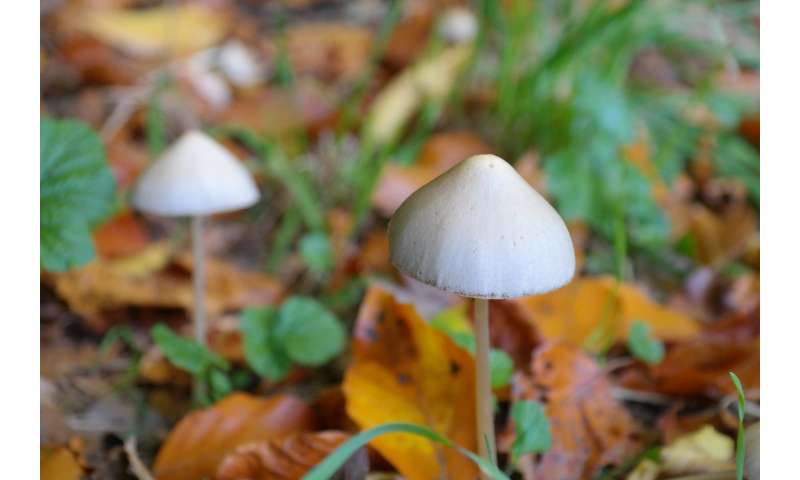
An international team of researchers has built a biophysically realistic whole-brain model to explain the impact of psilocybin on the brain. In their paper published in Proceedings of the National Academy of Sciences, the group describes how they built their model and what they believe it shows.
Consumption of magic mushrooms results in hallucinogenic symptoms along with feelings of enlightenment and changes in perception. The active ingredient in such mushrooms is psilocybin—an alkaloid. Prior research has suggested that in addition to its hallucinogenic effects, psilocybin can also sometimes reduce symptoms of depression and some other mental illnesses. But how it does so has remained a mystery. In this new effort, the researchers undertook a large-scale effort to find out what psilocybin does to the brain.
The work involved obtaining and analyzing diffusion data from 16 volunteers who had undergone MRI scanning, recruiting another 210 volunteers for PET scans, and recruiting an additional nine patients to undergo MRI scans while under the influence of either psilocybin or saline that served as a control. The researchers combined all the amassed data and used it to build a biophysically realistic whole-brain model that showed neurons and neurotransmitters as they worked together under normal circumstances and then as psilocybin was introduced.
In studying their model, the researchers were able to observe normal neurotransmitter activity between neurons which, when combined with others, formed a network that allowed the brain to function and process information. But when psilocybin was introduced, the networks were disrupted, pushing the neurotransmitters to forge new pathways between neurons. In such a scenario, the brain was able to move messages between networks in ways that do not occur normally. This was due to the coupling between neurons and the release of neurotransmitters—both were needed for the process to happen. Without one or the other, psilocybin had little impact on the brain. The researchers suggest this finding not only explains what happens in the brain under the influence of psilocybin, but could lead to the development of better therapies to treat mental illnesses. They further suggest that the brain is able to respond to unexpected interruptions to its normal workings in novel and unexpected ways.
Bob Yirka , Medical Xpress

